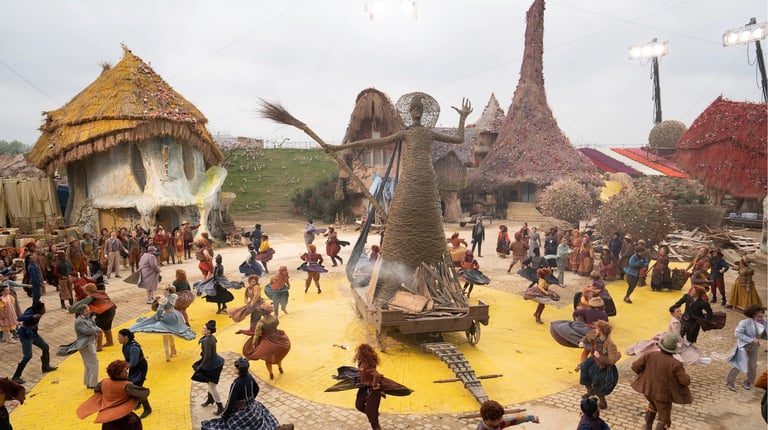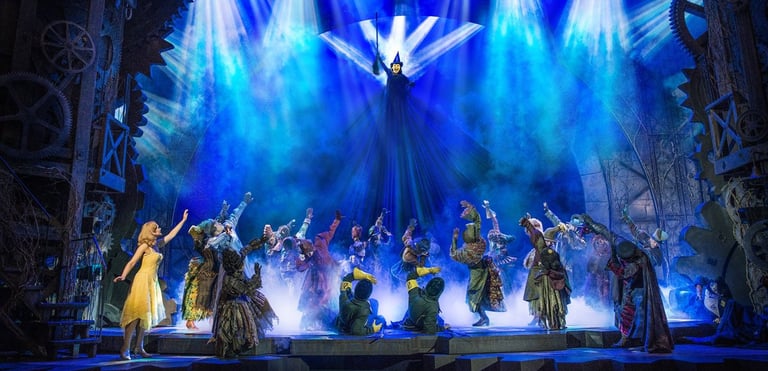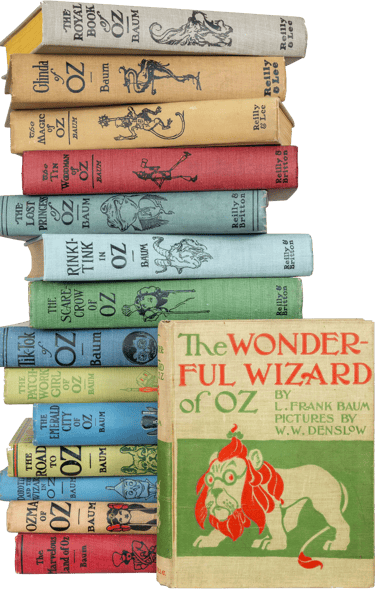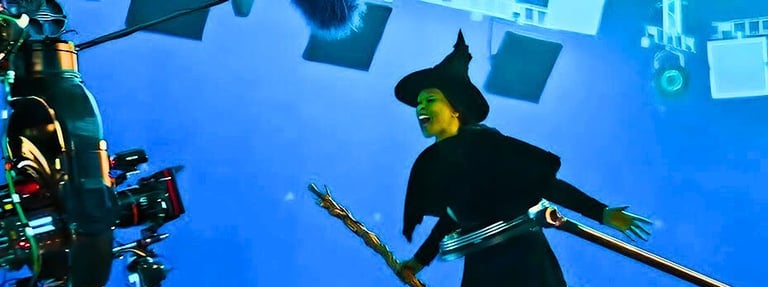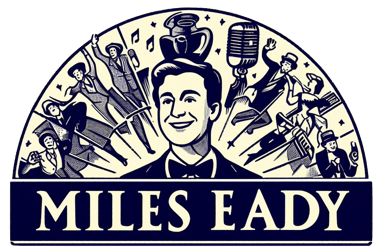From Oz to Wicked Part Five: Why We Keep Returning to Emerald City
Cultural impact and relevance
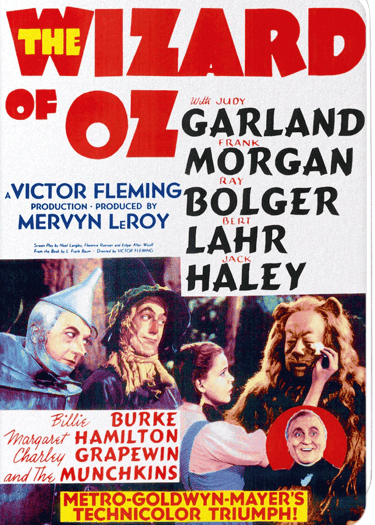

The road to Oz never really closed. It’s merely been resurfaced in different eras — in Technicolor, Broadway gloss, and now 4K HDR. Wicked reaffirmed a century-long cultural experiment: a recurring attempt to locate ourselves, morally and emotionally, somewhere between Kansas and the Emerald City.
If The Wizard of Oz was a myth of arrival — the yearning for “home” — Wicked is a myth of awakening — the courage to see who we really are and what happens after we’ve defied gravity.
The Emerald Mirror
Director Jon M. Chu imagined Oz as gleaming, polished and perilously cheerful — a world where waking up is a political act. Elphaba’s journey is, at heart, a story of awakening: of seeing through the glitter to the machinery beneath. Her “Defying Gravity” moment isn’t rebellion for its own sake; it’s the shock of consciousness, the refusal to dream the same old dream. Wicked reminds us that even the most beloved stories deserve to be questioned — that sometimes the yellow brick road was never golden, only painted to look that way.
A Spell That Still Speaks
Wicked could be seen as our newsfeed with an overture.
In one way it is a morality tale about power — and how easily confidence can pass for competence. The Wizard is a blustering showman, a self-promoting fraud who controls the media, a salesman spinning smoke and mirrors into something like leadership. His reign of illusion and denial speaks of an age where truth has become curated and negotiable — a reminder that when spectacle replaces substance, one man hiding behind a curtain can cast a dangerously long shadow.
And in this context, Elphaba’s green skin is a symbol of social exclusion.
The Power of Friendship, Revisited
The friendship between Glinda and Elphaba forms the emotional core of Wicked — a rare Broadway platonic love story between two women, its influence stretching all the way to Frozen. The show traces how difference transforms into connection and how that connection must evolve. Glinda inherits a kingdom veiled in myth; Elphaba wins freedom only by vanishing from view. Their journey is both an awakening and a parting. The deepest bonds don’t always survive — sometimesn we must learn to let go and live apart.
Fans, Followers, and Flying Monkeys
The first film became the highest-grossing musical movie of all time and success comes possession. Fans choreographed TikTok recreations of “What Is This Feeling?”; a clip of a journalist telling Cynthia Erivo and Ariana Grande that queer audiences were “holding space” for “Defying Gravity” became an anthem of belonging. Wicked has become collective property owned by everyone who’s ever felt miscast by life.
Marketing as Mythology
Universal leaned into that sense of participation: an interactive Shiz University online portal invited visitors to report “suspicious witch activity” to the Wizard’s regime. Satire doubled as engagement; fandom became part of the story.
The Sound of Modern Mythmaking
Across five decades, Stephen Schwartz has written about faith, rebellion and the moral undertow of song. For the film adaptations, Schwarts has helped Wicked evolve further by composing new songs to meet the scale of the story’s emotional weight. These are films with live-recorded vocals and a 125-piece orchestra with rich orchestrations.
The film adaptations also re-examined representation. Nessarose’s character, now played by Marissa Bode, who uses a wheelchair, was rewritten so that her enchanted shoes allow her to fly rather than walk — transforming a once-problematic subplot into a celebration of mobility and agency. Wicked continues, even now, to revise its own moral script.
A Darker Oz for a Brighter Age
Wicked deepens the shadows of Oz without dimming its light. The cheerful binaries of 1939 — good witch, bad witch — give way to complexity, ambiguity and consequence. Yet Wicked doesn't succumb to cynicism. It celebrates the fact that storytelling itself can be an act of resistance — that returning to Oz isn’t escapism but an opportunity to re-imagine.
Why We Keep Going Back
What keeps drawing us back to Oz is need more than nostalgia. Every retelling has offered comfort or clarity to a world off balance. In 1900, L. Frank Baum’s The Wonderful Wizard of Oz gave America a new kind of fairy tale — a prairie allegory for ordinary people trying to believe in their own power amid economic uncertainty. The lavish 1939 MGM film arrived at the end of the Great Depression, its Technicolor optimism a dream of abundance when the real world was still grey and lean. In the 1970s, The Wiz reimagined that dream through the lens of diverse communities, transforming Oz into a city of self-definition and pride in the wake of the civil rights era. Even Sam Raimi’s 2013 Oz the Great and Powerful reflected a postmodern fascination with the flawed man behind the myth — a world newly sceptical of spectacle. And with Wicked, Schwartz and Holzman give us an Oz for the age of misinformation, asking what happens when history is written by the winners — and who we become when we start to question the story.
Watch
Before you watch: these videos are official releases and still live at time of posting.
The Disastrous Production History of The Wizard of Oz
A revealing featurette on how the original 1939 film survived budget blow-outs, director swaps and studio politics — sets the cultural stakes for why Oz still matters.
Further Reading
Women, Leadership, and Power: Revisiting the Wicked Witch of the West by Sharon D. Kruse and Sandra Spickard Prettyman
A thoughtful exploration of Elphaba as a feminist icon whose defiance redefines leadership on and off the stage.
Buy it here
A Black Woman’s Analysis of Wicked the Musical: Examining Elphaba’s Story 20 Years Later by Makayla I. Gathers
Interrogates Wicked through a race-conscious lens, reframing Elphaba’s otherness within broader cultural narratives of marginalisation and empowerment.
Read it here
Analyzing a Performative Text through Cluster Criticism: Hegemony in the Musical Wicked as a Case Study by Valerie Lynn Schrader
Considers how language and structure in Wicked reinforce — and resist — dominant ideologies, offering a blueprint for how the show’s message continues to evolve.
Read it here
Explore the Series
← Part 4: Unlocking Wicked: The Academic Take
[End of Series]
Wicked | BEHIND THE SCENES | Cynthia Erivo | Ariana Grande
Modern counterpart discussing legacy, fandom, adaptation and how the myth of Oz is being re-made for our times.


